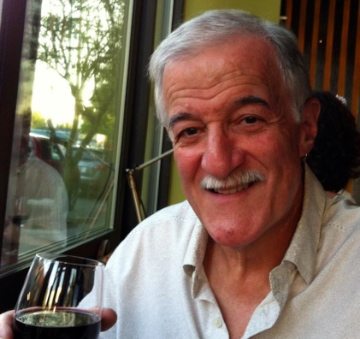Let's start with a short list of examples in which a majority of the public in and around Portland, Oregon has expressed a basic distrust of government.
- a vote to not allow the City of Portland to add fluoride to drinking water - all credible science, medical and public health sources conclude that adding the proper amount of fluoride to drinking water has public health benefits; however, a misinformation campaign, supported by many progressive citizens, rejected the proposal by a large margin;
- a ballot initiative will ask voters to take the responsibilities for sewer and water services away from City of Portland Bureaus and place it instead with a newly created water and sewer public utility - missteps and misappropriations of money by City water and sewer bureaus have made headlines, and Portland's water and sewer rates are among the highest in the nation, and continue to climb;
- voters in Clackamas County, south of Portland, resoundingly said no to Clackamas County contributing funds to replace the Sellwood Bridge over the Willamette River - a large number of people in Clackamas County use the Sellwood Bridge for their daily commute to Portland; in fact, 83% of trips across the bridge begin or end outside of Portland. The Sellwood Bridge is owned by Multnomah County, and funding for the replacement of the old and unsafe structure came from Multnomah County, City of Portland, and state and federal transportation funds;
- voters in Clark County, Washington, across the Columbia River from Portland, have at least twice rejected funding an extension of light rail across the river, even though huge numbers of Clark County residents commute to Portland for work and shopping (Oregon has no sales tax, Washington does);
- voters in Tigard, Oregon, just south of Portland, have passed a resolution that requires a public vote for any high-capacity transit project, such as proposed light rail or bus-only lanes, and further amends the City Charter to state opposition to high-capacity transit - Tigard has some of the worst traffic congestion in the region, with a 4-lane state highway going through the middle of town as a major arterial. Driving into or out of Portland through Tigard on Highway 99 is always a nightmare experience.
The list is long, but these few examples illustrate the point that citizens flat-out don't trust government to know or do what's right for the public. The rallying cries seem to be "keep government out of my business" and "don't confuse me with facts." I will be the first to admit that every level of government, from local to federal, seems to have serious issues with inability to act, inability to reach consensus, mismanagement and often a deaf ear to reality. The answer to these issues, however, is not to insist that a no answer is the only answer to government programs, but rather to insist that government correct it's deficiencies and truly serve the people (I've always liked that slogan).
Voters should not be the decision makers concerning public health, transportation infrastructure, public utilities and other items that are basic public needs. Citizens, as voters, should be the watchdogs of government, expressing through their votes what issues are important, and how government should process and reach decisions. And citizens need to be active in public affairs, attending and speaking up at hearings, public meetings, town halls and other opportunities to guide the actions of government. Just saying no is not productive, it is destructive.
I think too many people rely on someone else to do the work of exploring and researching an issue. People rely on a TV program, a radio talk show, or any internet site that has an appealing message to form their opinions about public issues. I tend to think that we suffer from a severe epidemic of intellectual laziness. Credible information is a few clicks away on a computer if you really want the facts; it's not difficult to learn the difference between credible, factual information and one-sided opinion. Sadly, a majority of voters seem to be too lazy to seek fact, and default to fiction.
I wonder how the Age of Don't Trust Government will play out. I hope it has a short duration, but I fear that it will hang on for too long, and the consequences will be pretty dismal.

No comments:
Post a Comment